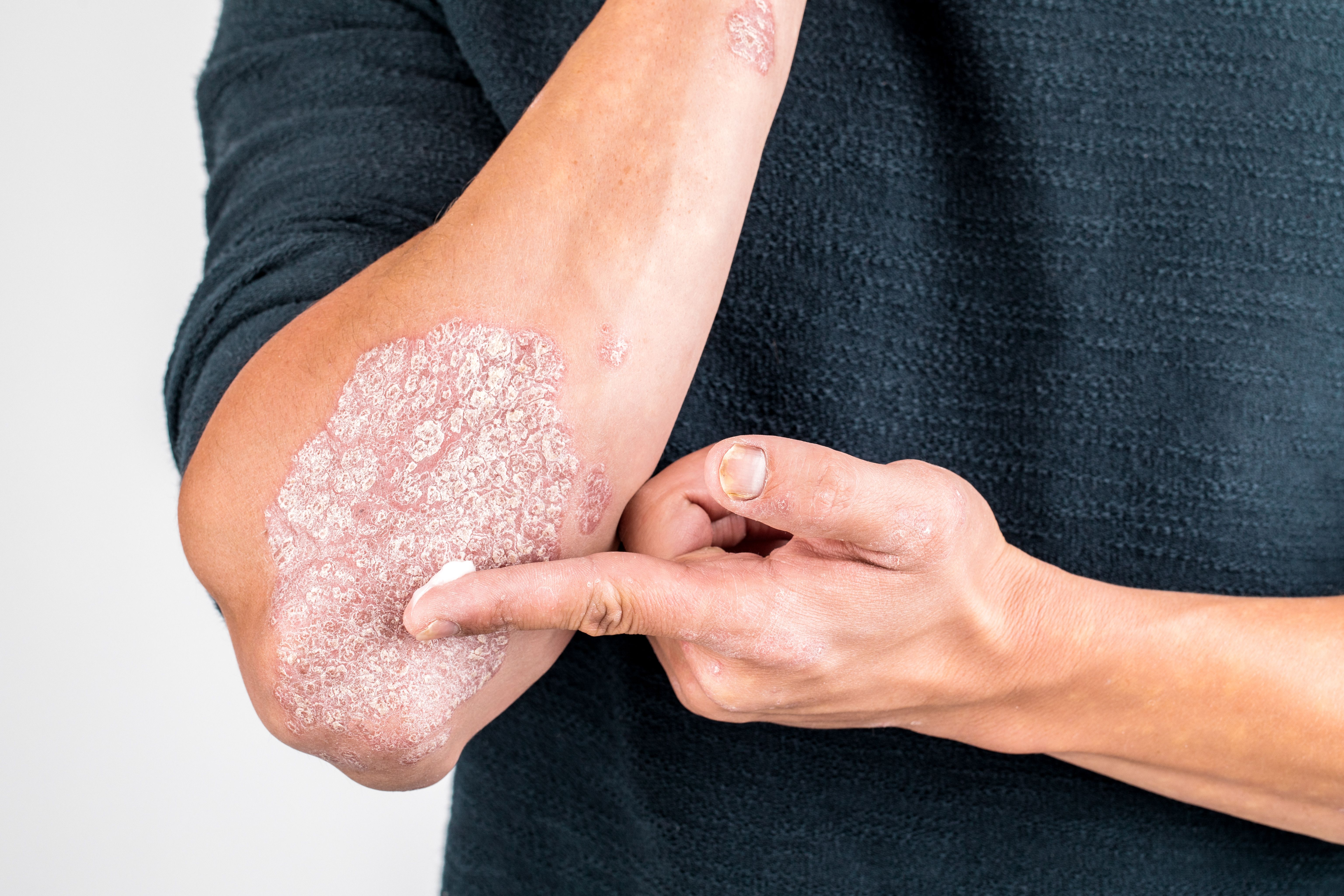- General Dermatology
- Eczema
- Chronic Hand Eczema
- Alopecia
- Aesthetics
- Vitiligo
- COVID-19
- Actinic Keratosis
- Precision Medicine and Biologics
- Rare Disease
- Wound Care
- Rosacea
- Psoriasis
- Psoriatic Arthritis
- Atopic Dermatitis
- Melasma
- NP and PA
- Skin Cancer
- Hidradenitis Suppurativa
- Drug Watch
- Pigmentary Disorders
- Acne
- Pediatric Dermatology
- Practice Management
- Prurigo Nodularis
Article
Psoriasis in patients with skin of color
Author(s):
Psoriasis in nonwhite patient populations is not well described, according to Andrew F. Alexis, M.D., M.P.H., director of the Skin of Color Center, at St. Luke’s Roosevelt Hospital, Mount Sinai Health System, New York.
Psoriasis in nonwhite patient populations is not well described, according to Andrew F. Alexis, M.D., M.P.H., director of the Skin of Color Center, at St. Luke’s Roosevelt Hospital, Mount Sinai Health System, New York.
“If one were to research the published medical literature on psoriasis in … blacks, for example, one would find very little information about any differences in clinical presentation or differences in quality of life or in the epidemiology. The few studies that do report on the epidemiology of psoriasis prior to 2005 reported psoriasis as being rare among blacks, but subsequent studies in the last 10 years show it’s much more common than previously reported,” Dr. Alexis says.
A study published in the March 2014 issue of the Journal of the American Academy of Dermatology found the prevalence of psoriasis to be 1.9 percent in African-Americans versus 3.6 percent in Caucasians (Rachakonda TD, Schupp CW, Armstrong AW. J Am Acad Dermatol. 2014;70(3):512-516).
“A survey by the National Psoriasis Foundation found that individuals in nonwhite racial-ethnic groups, especially African-Americans, reported a greater degree of negative impact of the psoriasis on their quality of life,” Dr. Alexis says.
According to Dr. Alexis, psoriasis in African-Americans tends to have less visible redness and can have a violaceous hue in darkly pigmented skin types.
“In some cases psoriasis can be slightly more difficult to diagnose in black skin, as the features can be similar to other inflammatory skin disorders with scaly plaques (such as lichen planus or lichen simplex chronicus) and less typical of ‘text book’ psoriasis,” he says. “Also, in all darker skin types (especially black skin), there is a tendency to have persistent dark patches at sites of psoriasis due to postinflammatory hyperpigmentation.… Psoriasis plaques can also resolve with persistent light spots that last several weeks (postinflammatory hypopigmentation). When African-American females present with scalp psoriasis there are nuances to treatment.”
Because of the different haircare practices and hair characteristics between African-American and others, treating scalp psoriasis with a daily shampoo prescription could be met with resistance on the part of the patient and possibly result in hair breakage (due to greater fragility and dryness of Afro-textured hair), Dr. Alexis says.
“One has to take into account those hair styles when prescribing a topical regimen. Asking the patient whether a water-based solution, versus a lotion, foam or oil-based product is most suitable for their hairstyle and hair practices is important,” he says. “In other words, you have to take an extra step to consider the haircare practices of that patient before you prescribe.
“My impression is that awareness of psoriasis in the African-American and Latino communities is lower than that in the general population, and this contributes to delays in diagnosis and appropriate treatment.”
Disclosures: Dr. Alexis is a consultant for Amgen and Galderma and is a consultant and investigator for Allergan.
For more information:
Shah SK, Arthur A, Yang YC, et al. J Drugs Dermatol. 2011;10(8):866-872.






